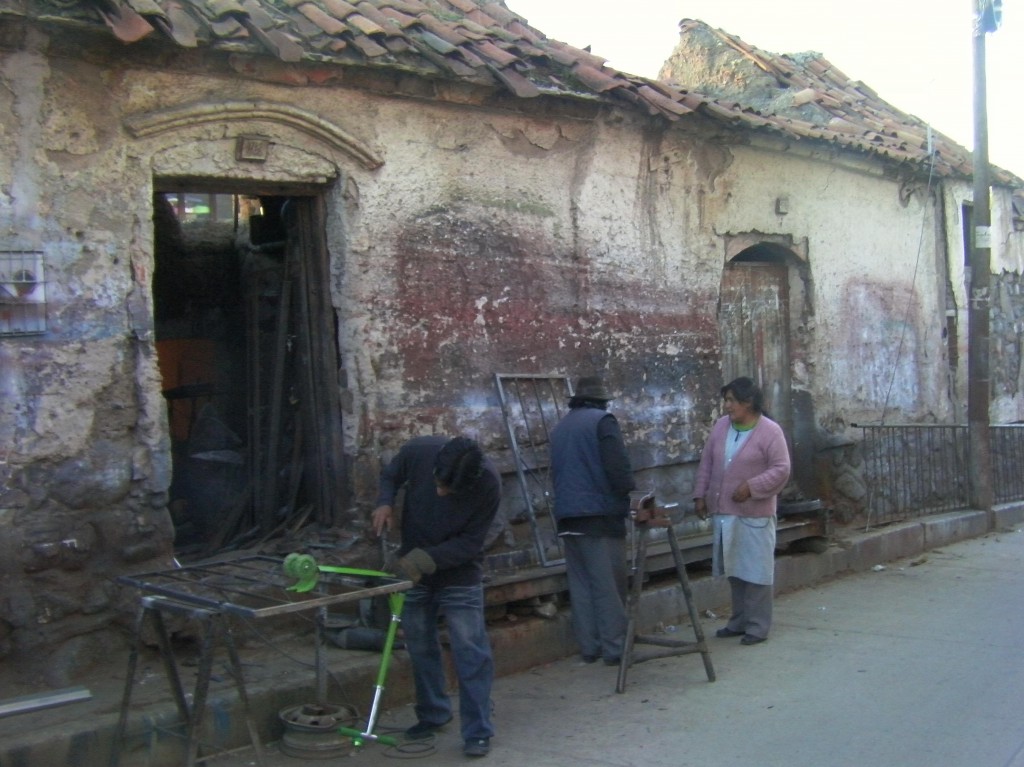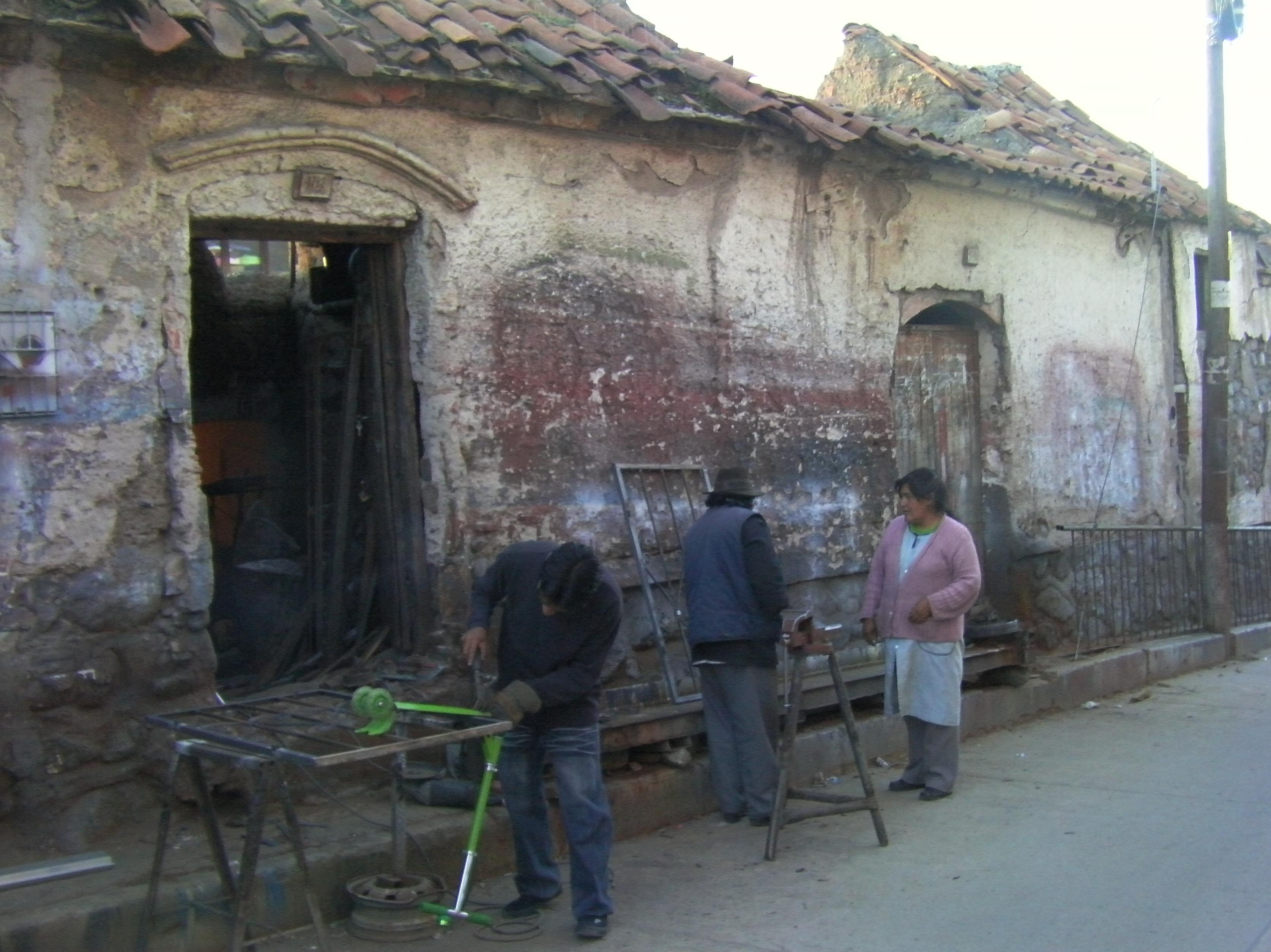 This was a book, much like America Beyond Capitalism, that I really wanted to like. I even did like parts of it. Unfortunately I only have time to list my problems with it right now, so I should add up front the corollary that I’m really sympathetic to any proposal for an alternative economic system that is (a) realistic and achievable in the forseeable future and (b) mostly organised outside of the state and even (c) doesn’t reject markets entirely (I don’t think you can, though the ‘free market’ is obviously a silly myth and not the basis for any kind of discussion).
This was a book, much like America Beyond Capitalism, that I really wanted to like. I even did like parts of it. Unfortunately I only have time to list my problems with it right now, so I should add up front the corollary that I’m really sympathetic to any proposal for an alternative economic system that is (a) realistic and achievable in the forseeable future and (b) mostly organised outside of the state and even (c) doesn’t reject markets entirely (I don’t think you can, though the ‘free market’ is obviously a silly myth and not the basis for any kind of discussion).
This book proposes a system of co-operatives replacing corporations; publicly owned and run banks replacing most of what private banks do; and a tax on capital assets on these co-operatives. The effect of this is that worker-run enterprises would almost be ‘renting’ their capital assets from ‘society’, which is also the investor in them through banks. To make this work there are some addition measures that need to be taken, such as preventing or stemming cross-border capital flows, and equitable regional allocations of funding through the bank system.
There’s the germ of something really good here, although I’m not sure we know whether that system of taxation/investment would be stable (we’re still using money here but it would function in a somewhat different way from our money at present I think). But let’s say it is a stable system. There are still, I think, some gaping holes in this system. A quick list:
- While there is still a large and active public sector in this system, Schweickart doesn’t seem to address democratisation there.
- Environmentalism seems to depend on individuals making ‘ethical choices’, much like in the current system, except supposedly worker-managers would be more interested in the long term environmental impacts of their activities. Hmm.
- Control of the media is never addressed, either in the public sector or private sector. This is quite a weird omission – I concur with Dan Hind that control and ownership of media is one of the first things you need to reform.
- Schweickart is pretty vague on how to build a movement to achieve what he wants. There is very little talk of getting from here to there. Perhaps he thinks that showing that this is logically the best option is all it would take.
- He admits that production surplus could lead to either decreased working hours or increasing consumption – again we are to determine which path we go down as we go along.
- The banks he proposes seem to have very few democratic controls on them, despite having a mandate to work on behalf of the people. To say that the banks would be in danger of falling into the hands of a professional technocrat class is an understatement: it strikes me more as a certainty.
- The model doesn’t spend any time discussing the nature of money. Schweickart gives the impression he thinks that money we put in a savings bank is then re-invested and that’s all there is to it. There are various accounts of how money works but that isn’t one held by anyone who has investigated it.
- A tax on capital assets is proposed as a replacement for almost all taxes. But this seems pretty simplistic. Should a factory (with large capital assets) pay so much more than a graphic design company (with few assets)? It could be that the latter gets more social investment in the form of education – this is never addressed, and its possible to imagine many other such complications.
Last, but not least (it gets a whole paragraph rather than a bullet point) there is a huge focus on work and production throughout the book. The book starts with a weird and unnecessary defence of historical materialism and relies on a labour theory of value. Perhaps this debt to Marx explains the focus on work – though I’m not sure it is one Marx would have agreed with. It all means that Schweickart comes out against a basic income, because he thinks people working would be supporting lots of people not working. It seems to me that point of view relies very much on the labour theory of value, and I don’t have time to go into that now but it makes no sense to me. Another consequence of the focus on work and production is that, for example, declining population is seen as a problem. I don’t want to speak for the planet here, but since it has endured a similarly production-oriented system for a while now, I’m guessing it would rather take a break from all that, and a drop in human population would come as quite a relief.
In conclusion, an economic system that at first glance leans towards my viewpoint, on closer inspection doesn’t look so good to me. There are a lot of gaps to be addressed in it, some of them solvable, some of them possibly not. And while production and work have got to be a major factor in any economic system, I’m not sure they should be the dominant factors. On a personal level I’d rather find another way.

I agree there is this work obsession in After Capitalism and this is expressed in Schweickart’s opposition to basic income which I disagree with. But I don’t think you’ve given enough credit to what he says capitalism is. His point is that, contrary to endless propaganda about wealth creation, capitalism is defined by people who own lots of assets getting something for nothing. He includes both workers and entrepreneurs in the class of people who contribute something, but the vast bulk of wealth generated goes into the hands of people who don’t have to do anything. This is indirectly supported by someone like Thomas Piketty’s contention that income from labour is being over-taken by income from capital (just owning things), and is the major driver of inequality. So I think what he says here is well worth taking on board – http://idealoblog.blogspot.co.uk/2012/11/wealth-creation-for-dummies-review-of.html
I also think that social control of investment would, crucially, take the power of determining investment decisions away from banks.
I agree with you, though, that Schweickart’s contention that worker-controlled enterprises would transform attitudes to the environment to be very unconvincing
But isn’t the notion that capitalism is defined by owners getting something for nothing, at the cost of other people, fairly standard left analysis?
by the way, I don’t just disagree with what he says on basic income, I think he’s got a major blind spot here (in common with other Marx-inspired economists like Richard Wolff). I think the labour market will never deliver the goods again like it did in the past, so you need a basic income that will provide basic security not dependent on molding yourself into the kind of person that companies want.
On money, I remember Schweickart argues that people could save if they wanted to, but there would be little point because banks couldn’t loan out the savings to business so there would be no interest (a bit like now but for different reasons). I did read of this person called Silvio Gesell (in the David Harvey book, ’17 Contradictions …’) who wanted an economy where money could be used but would then destroy itself immediately after use (so it could accrue in a bank). “Only money that goes out of date like a newspaper, rots like potatoes, evaporates like ether, is capable of standing the test as an instrument of exchange of potatoes, newspapers, iron and ether” he apparently said.
I’ve seen this notion of money with an expiration date before. I think it’s been done as an emergency measure in a couple of places. I’d be interested to see a proper analysis of how it might operate.